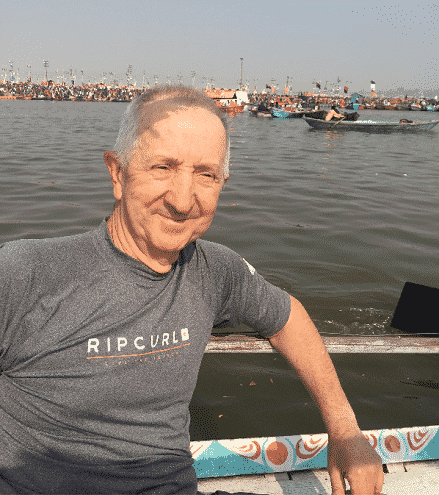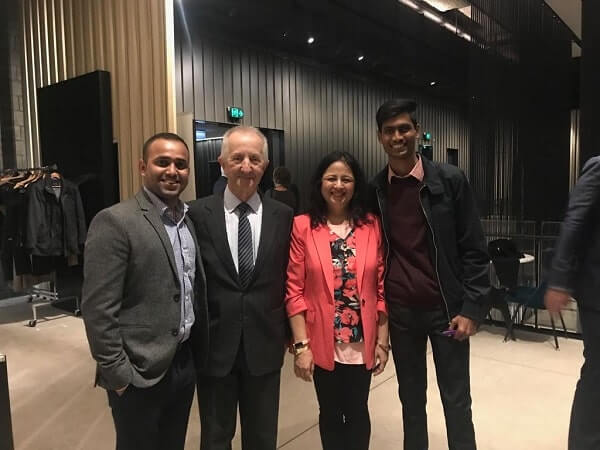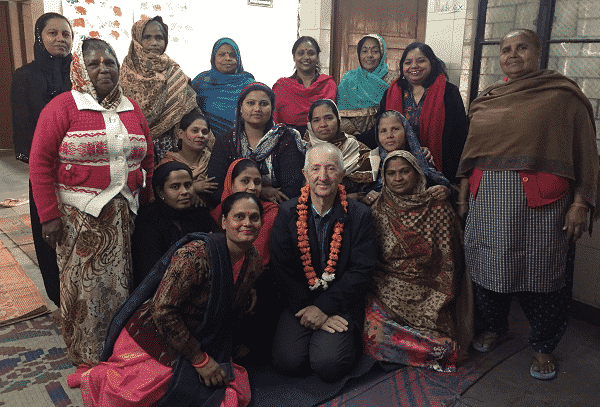“I always say – there’s more diversity between Kashmir and Kerala than there is between Norway and Greece,” said Robert Johanson fondly as he looked back on his two dozen trips to India in the last decade.
This year, his marked commitment to Australia-India relations was recognised with an Australia Day honour, alongside his respected career in banking, having served on the board of Bendigo and Adelaide Bank for over 30 years.
In the field of tertiary education, too, the veteran banker has donned many hats – chairing the Investment Committee and serving as Deputy Chancellor at the University of Melbourne and now, board member of Melbourne Business School.
Still, he remains almost surprised to receive the award.
“It’s a great honour… Some might expect it, but I didn’t really know I was being nominated,” he admitted.
As Chairman of the Australia India Institute since 2011, and Chairman of Australian Friends of Asha for Slums since 2012, he’s no stranger to the Indian subcontinent. Reflecting on the relationship between the two nations, which has certainly seen its ups and downs in the 21st century, Robert looks ahead with optimism.

READ ALSO: Australia Day Awards 2021: Dr Anand Naidoo OAM
As he explains, diplomacy today has evolved from the days of contest between a handful of big powers.
“We’re all becoming increasingly aware of the relationship with India and Australia. As time has passed, with the changing role of the United States and developments in China, it’s been important for India and Australia to strengthen ties.”
Having had a pivotal role in establishing the Australia India Institute, how does he envision its role in facilitating this relationship?
“Over the last 10 years, it’s been an interesting experience to get involved and see how the institute deepens the engagement between India and Australia. The institute facilitates academic research and collaboration, but there’s a broader scope as well. We’ve assisted when political figures like Prime Minister Modi came to visit Australia. We’ve helped organize exchanges and round tables. The institute recognises the crucial role of mobilising the youth,” Robert elaborated.
A crucial part in this developing relationship, he points out, is understanding India as a “rich, diverse and complex country” with a still overwhelmingly rural population.
Through his work with Australian Friends of Asha, the Australian branch of Asha India, he has seen this first-hand. The charitable organisation, created by Dr Kiran Martin in 1988, addresses social, health, and education issues affecting slum dwellers in New Delhi.
The pride in Robert’s voice is evident when he shares the success story of Mahinder, who was born and raised in a Delhi slum, and went on to complete his master’s in computer science at the University of Melbourne in 2018.
“Over the years, we’re seeing how lives are being transformed through education,” Robert said.

In the case of Australia, whose tertiary education sector was shaken up when borders were closed practically overnight, he identifies a real opportunity.
“Australia became structurally reliant on international students. These overseas students contribute not just through money, but to the richness and multiplicity of universities… Out of this crisis, there’s a real chance to reset.”
In fact, he extends this philosophy to most aspects of life since the pandemic.
“Hopefully we don’t just rush to resume life as it was. It’s a chance to sit back and pause. To reassess how we work, how we live, how and what we consume, and our relationship to the environment…” Robert said. “It’s a chance to rediscover what’s really important.”
READ ALSO: Australia Day Awards 2021: The late Dr Amarjit Singh More, OAM




